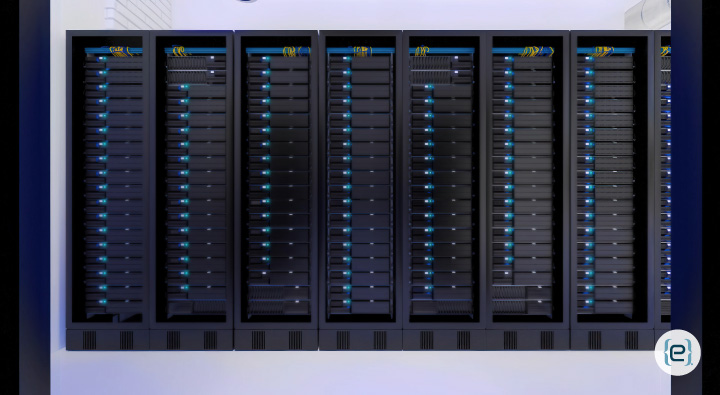Terminal Servers improve Remote Access and Centralized Computing


Terminal servers improve Remote Access and Centralized Computing. Terminal servers are an integral component of your IT infrastructure, publishing centralized applications and desktops to multiple remote users. This cost-effective method allows your business to have software and data online via the Internet. It also eliminates the need for installation on individual user devices.
In this configuration, the terminal server acts as a computer or device that interacts with each client to run and manage all instances using a separate network connection. Users perceive their connections as regular applications displayed on the host machine. Communicating with the server via protocols like Remote Desktop Protocol (RDP) or Citrix ICA. This setup makes it feel as though applications are executed at a central point where all processing and data reside.
Terminal servers manage applications, data files, and user connections in a centralized manner, preventing the need for local hardware installation. Users can access resources from thin clients, desktop computers, workstations, or mobile devices, regardless of location.
Characteristics of Terminal Servers
- Centralized Application Lifecycle Management: Applications are installed and managed on a central server, allowing updates and patches at a single location.
- Remote Desktop Access: Users can log in to their work environment via Remote Desktop, accessing files, applications, and services from anywhere. This is crucial for remote workforces or organizations with multiple branches.
- User Sessions: Terminal servers allow multiple users to connect simultaneously, with each session sandboxed for privacy and stability.
- Support for Thin Clients: Terminal servers support thin clients, low-power devices that rely on the server for processing, reducing hardware expenses.
- Secure Access Control: Terminal servers enable security configurations like usernames, passwords, and multi-factor authentication, ensuring only authenticated users can log in.
How Terminal Servers Work Improve Remote Access
When you log into a terminal server, the system “spins up” a virtual session for each user. This makes it feel like you’re sitting in front of your local computer, with applications, files, and resources readily accessible. The terminal server handles all processing work, exchanging only screen, keyboard, and mouse information with user devices. This setup requires less bandwidth, as only input/output data travels between the client device and the server.
Benefits of Terminal Servers
- Cost Savings: Terminal servers reduce the processing burden on local hardware, allowing you to use existing hardware or thin clients and lower maintenance costs. Centralized software management further reduces expenses.
- Enhanced Security: Sensitive data remains within the terminal server, reducing the risk of data compromise if devices are lost or stolen. Administrators can monitor sessions and enforce security policies.
- Flexibility: Terminal servers allow personnel to work from anywhere, using any desktop or program, enabling remote or hybrid working without compromising performance and security.
- Syncing: Terminal servers centralize application installs and maintenance, ensuring consistent versions and reducing version mismatch downtime.
- Scalability: Quickly bring new users online by providing login details and access rights, without additional hardware. Add terminal servers as your business grows.
Terminal Servers Improve Remote Access: Use Cases
Terminal servers improve remote access and offer numerous use cases across various industries:
- Call Centres and Help Desks: Terminal servers encapsulate thin clients or virtual desktops, facilitating onboarding and scaling operations.
- Healthcare and Education: Hospitals and educational institutions use terminal servers to centralize data and applications, enabling secure access for staff, students, and healthcare professionals.
- Manufacturing and Retail: Terminal servers provide quick access to ERP systems, sales data, and inventory management software, keeping employees informed with the latest information.
- Software Development and Testing: Terminal servers create isolated testing environments, allowing multiple developers to work on different instances of the same application without affecting others’ code.
Contact eMazzanti today! We can help your business leverage terminal servers for improved remote access and centralized computing.
Recent Posts
Step Up Your Threat Response With Security Copilot
As we move deeper into 2025, you are probably focusing on ways to expand your…
Watch Out for the Cyber Security Menace
As we move deeper into 2025, you are probably focusing on ways to expand your…
The Rise of AI Agents: Simplifying Tasks and Connecting Technologies
Introducing eCare Bot: Your Intelligent IT Support Assistant In today's fast-paced world, the emergence of…
Server Simplified
At eMazzanti Technologies, we recognize that stable, effective, and expandable servers are essential to the seamless operation of enterprises. For this reason, we collaborate with Hewlett Packard Enterprise (HPE) to offer our clients the best server solutions possible, customized to meet their unique requirements. HPE servers provide the performance and flexibility required for small and big businesses to manage data, support apps, and manage workloads with ease. Customers may choose the best HPE servers for their organization with the assistance of our team of specialists. We take the time to comprehend the particular needs of every client, including those related to processing speed, storage capacity, and security features. Whether our clients require a general-purpose ProLiant server or a…
How to Make Your AI Copy Sound Authentic: Writing Like a Human, Not a Machine
AI writing tools have become popular for creating content quickly. But many readers can spot…
Data Analytics for Old-School Business Owners: Turning Dusty Ledgers into Gold Mines
Data analytics is changing the game for businesses of all types, including old-school industries that…


